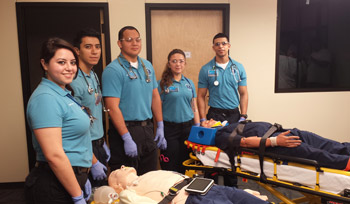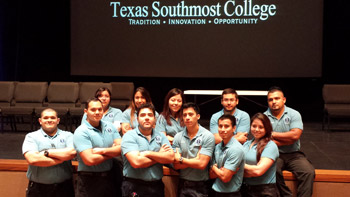EMS Programs of Study |
Program InformationEmergency Medical Services personnel provide emergency care in out-of-hospital settings anywhere and everywhere, working in uncontrolled environments, often with little assistance or resources. The Emergency Medical Science Program offers a wide variety of courses designed to train students to provide fast and efficient emergency medical care to the sick and injured, both at the scene and during their subsequent transport to the hospital. The program also works to meet the changing demands of pre-hospital medical professionals. Graduates of our program will have the option to work for ambulance providers, fire departments, emergency departments, intensive care units, air ambulances, helicopter rescue services, and industrial safety programs. Emergency Medical TechnicianEMT training is designed to prepare students to provide basic life support measures, as a member of an ambulance crew, at the scene of an accident, during transport to a hospital or medical facility, and in the medical facility. Course work combines classroom lecture, practical skills laboratory and actual patient clinical experiences.
ParamedicIn addition to performing the skills of an EMT, paramedics are trained in advanced life support techniques, including endotracheal intubation, electrocardiogram monitoring and interpretation, DC electrical counter shock and administration of intravenous fluids and medications. Class work includes the courses required by the United States Department of Transportation as well as BTLS, ACLS and PALS courses. The paramedic program is fully accredited by state and national agencies. The following is a brief outline of topics covered in the course:
|
| Last Updated on Friday, 12 October 2018 08:24 |





